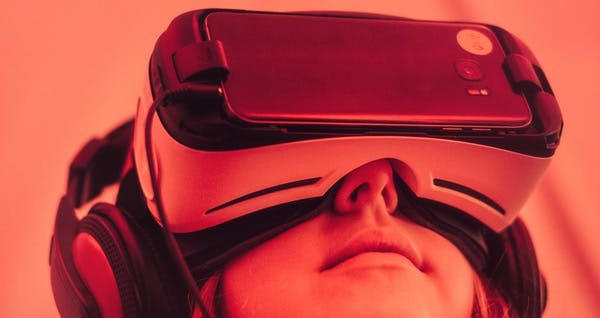With all the buzz around AI, automation, and machine learning, it’s easy to overlook the impact virtual reality and augmented reality could have on recruiting. Maybe that’s a mistake.
Google bought a company called Owlchemy yesterday. The company builds VR games and apps. Notably, they’re the company behind Job Simulator, a program that puts users in the shoes of an employee at a fictional company. Maybe you saw it in action on Conan.
The app is a game and not a real-life simulation. It’s marketing language helps explain the product by saying “In a world where robots have replaced all human jobs, step into the ‘Job Simulator’ to learn what it was like ‘to job’.
Players can relive the glory days of work by simulating the ins and outs of being a gourmet chef, an office worker, a convenience store clerk, and more.”
In January, Owlchemy revealed some numbers around Job Simulator that were positive. Through 2016, it grossed more than $3 million in revenues. In fact, it was so popular that the studio even released a physical version of the game for Sony’s PS4 console. It’s also on Oculus Rift, PlayStation VR, and Vive.
Google has been making a lot of noise in the employment space lately with news around Google Hire and job search, so it’s fun to speculate that buying a VR company that has created a job simulation game could mean a VR offering for employers. However, it’s probably wise to pump the breaks a bit on hoping such a strategy is coming.
It’s probably not.
However, the move is a vote of confidence for VR and Google’s commitment to the technology. Owlchemy is a game studio, and now Google can actively produce gaming content internally for head-mounted displays without having to necessarily work with outside companies. It also helps justify venture capital going into the technology.
“Together, we’ll be working to create engaging, immersive games and developing new interaction models across many different platforms to continue bringing the best VR experiences to life,” said Relja Markovic, engineering director, VR and AR at Google in a blog post. “There is so much more to build and learn, so stay tuned!”
Virtual reality has a long way to go, and it has had its hurdles. For example, Facebook, which owns Oculus Rift, recently slashed pricing 25 percent in light of bad sales numbers. From a personal perspective, I consider myself pretty tech savvy, and I’ve never put on a VR headset.
That said, it’s not difficult to see a day where employers create apps for the platform that transport job candidates and prospects into a virtual world where they can see the company and the people in it, while seeing what a day-in-the-life might look like. It’s potentially a very powerful employment branding tool as well.
If nothing else, just put virtual reality on your radar. Facebook believes in it. Google believes in it. And a lot of smart people believe in it. “It’s going to take five or 10 years of development before we get to where we all want to go,” Facebook’s Mark Zuckerberg said in January.
Growth is real, however. Annual shipments of VR headsets are set to surpass 12 million units in 2017 and will likely see strong growth through 2022, when annual shipments are projected to reach about 55 million. If Apple or Amazon decide to get in the game — and they probably will — those forecasts will increase. Savvy employers will be ahead of the curve and vendors are bound to pop up in noticeable numbers.
